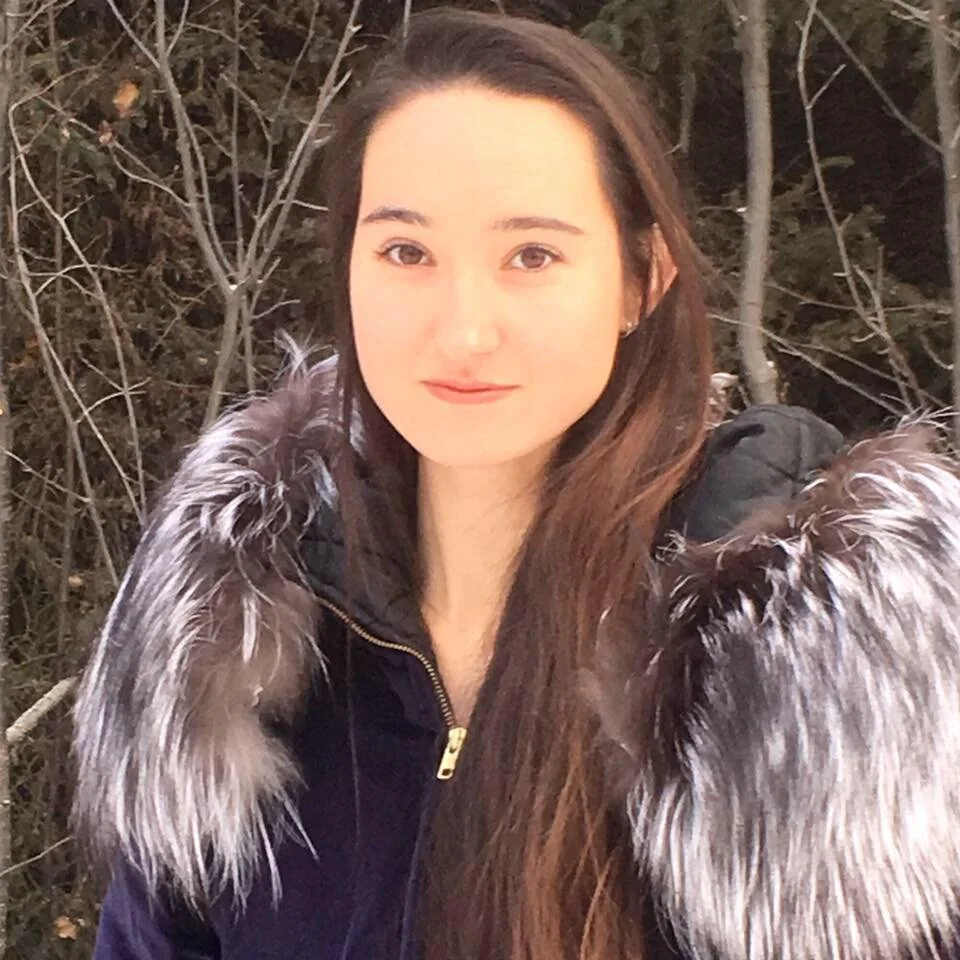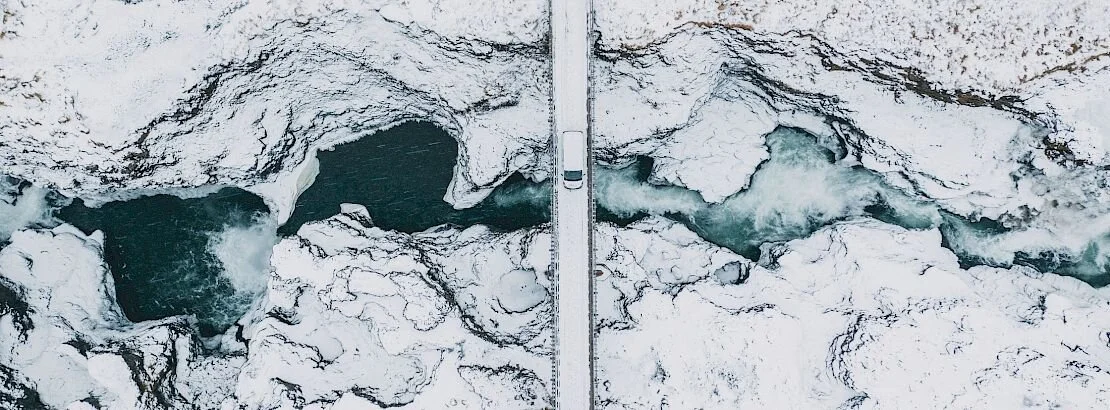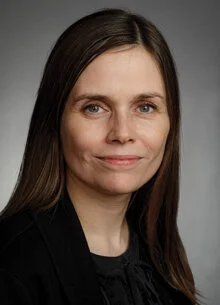An insightful interviews from the Arctic Council permanent participants on the Impact of COVID-19 on Indigenous Peoples in the Arctic.
Read MoreThe topics highlighted in this issue are: gender and climate change, inclusive economy, gender and security, decolonisation, sustainability, and indigenous youth engagement into science.
Read MoreIn this commentary Victoria Qutuuq Buschman, Inuk Conservation Biologist describes how indigenous youth in the Arctic are getting to work to address the pressing climate issues in the 21st century – coastal erosion, ocean acidification, pollution, fluctuating and unpredictable wildlife populations, biodiversity loss, unsustainable resource extraction, and data gaps in almost all areas of Arctic research.
Read MoreThe endeavour to achieve a gender balance in access to societal power is a cornerstone of the Nordic concept of democracy and gender equality policy. A key tool in gender equality work is knowledge of the distribution of women and men within various sectors of society, employment, and social positions of power.
Read MoreThe Faroe Islands are facing a shortage of women of marriageable age. Many of them have left and not returned so men are now travelling to South East Asia looking for love.
Read MoreSustainable development has been at the heart of the Arctic Council’s mandate since the Ottawa Declaration was signed in 1996. We chose sustainable development as the Icelandic Chairmanship program theme because in a rapidly changing world, we see the value in remembering our starting point. Editorial by Einar Gunnarsson, Chair of the Senior Arctic Officials
Read MoreThis podcast seeks to unfold the decolonisation of Greenland, from the early discussions after the Second World War to the recognition of Greenland as a Danish county in 1954. This podcast is part of a series where existing material on nordics.info is read out in assorted languages by colleagues and friends. Great for learning Danish or English.
Read MoreThis article is a contribution to the ongoing debate on human security in Security Dialogue; argue that they provide an illustration of the complexity and dynamism of security. By Svein Vigeland Rottem, Gunhild Hoogensen.
Read MoreThe plenary session Gender Equality in the Arctic during the Arctic Circle Forum 2018 in the Faroe Islands was organized by the Ministry for Foreign Affairs Iceland, the Icelandic Arctic Cooperation Network, the University of Akureyri, the Centre for Gender Equality, the University of Iceland and University of the Faroe Islands
Read More20 books from 20 authors.
Read MoreIceland’s prime minister Katrín Jakobsdóttir discusses what gender means for rethinking the economy
Read MoreIs gender equality a key factor in tackling climate change? Does gender influence the way that environmental issues are solved? By Jacqueline McGlade, Jackson Professor of the Environment
Read MoreAnalyses of climate change and the forest sector have identified the importance of individual actors, institutions, and organizations within communities for effective adaption and climate mitigation.
By Maureen G. Reed, Alyssa Scott, David Natcher, Mark Johnston
Read More“The first to face the effects of climate change are indigenous peoples of the North. The main reason is their dependence on the environment and their close relationship to natural resources”, Commentary by Anisiia Moiakunova.
Read MoreTopics highlighted in this Issue 4 range from women leading the fight against climate change in Alaska to gender equality in the maritime field from a Swedish female Captain’s perspective.
Read MoreEqual democracies? Gender and politics in the Nordic countries is the result of a joint effort between several Nordic scholars specialising in the study of gender and politics. We greatly appreciate the generous financial support granted by the Nordic Council of Ministers without which the project would never have materialised. We would especially like to thank Marianne Laxén at the Council for ensuring that our collaboration with the Council proceeded as smoothly and pleasantly as it did.
Read More




![Gender and Power in the Nordic Countries – with focus on politics and business. Kirsti Niskanen (ed.) [Book]](https://images.squarespace-cdn.com/content/v1/5b8aa4c90dbda3fc35ed17a0/1598949103381-TBK99TMORM0BJFKTNVOR/gean5.jpg)
![Wives Wanted in the Faroe Islands [Podcast]](https://images.squarespace-cdn.com/content/v1/5b8aa4c90dbda3fc35ed17a0/1598609390673-0660RZEQ61G6X8ORY0SH/p05124m4.jpg)

![Podcast: The Danish decolonisation of Greenland, 1945-54 [Podcast]](https://images.squarespace-cdn.com/content/v1/5b8aa4c90dbda3fc35ed17a0/1598520507984-ATJUDQPL5SCXXJP5OARW/74cb75bab2243992e98fab5156007185827084cf97936f24c0c66a651388df90.jpg)

![Gender Equality in the Arctic, Arctic Circle Forum in the Faroe Islands [Video]](https://images.squarespace-cdn.com/content/v1/5b8aa4c90dbda3fc35ed17a0/1598358698568-F8TZP7TZKDN3JG612ZF1/gender+picture+gea+times.jpg)


![Can Gender Equality Help Solve Climate Change? [Video]](https://images.squarespace-cdn.com/content/v1/5b8aa4c90dbda3fc35ed17a0/1597744598573-IQ82CDR4AIKI0JWL6IDM/maxresdefault+%281%29.jpg)
![Linking gender, climate change, adaptive capacity, and forest-based communities in Canada [Research article]](https://images.squarespace-cdn.com/content/v1/5b8aa4c90dbda3fc35ed17a0/1597744020177-4G0NJDV1O5K6EWZJZ2A4/the+GEA+Times+N5_paper_1.png)


![Equal Democracies? Gender and Politics in the Nordic Countries [Book]](https://images.squarespace-cdn.com/content/v1/5b8aa4c90dbda3fc35ed17a0/1592226555203-Z3W4O8OD6I9VYZX5UXIV/5350bab38fa5dea2ca1bb8efaba15e911b9175e269e6464f33616826.jpg)